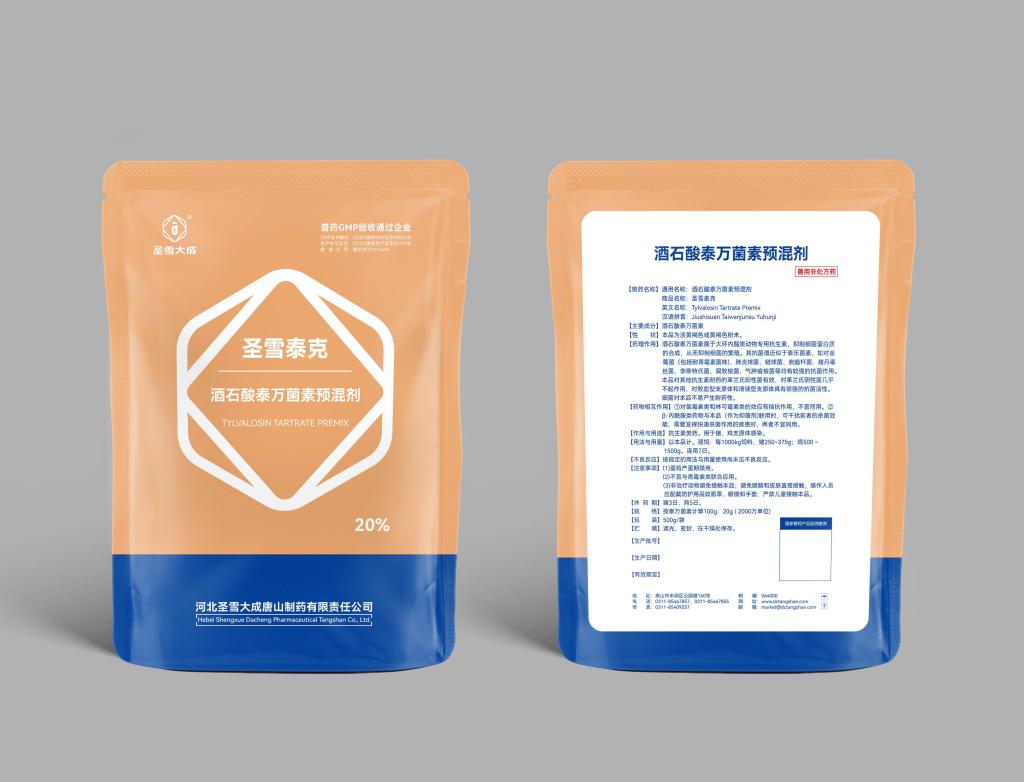Tel:+8618231198596

News
 CONTACT
CONTACT
 CONTACT
CONTACT
- Linkman:Linda Yao
- Tel: +8618231198596
- Email:linda.yao@dcpharma.cn
- Linkman:CHARLES.WANG
- Department:Overseas
- Tel: 0086 0311-85537378 0086 0311-85539701
News
Ongoing research explores novel applications and benefits of tylvalosin tartrate premix.
TIME:2024-09-14
Novel Applications of Tylvalosin Tartrate Premix
Prevention of Multi-Species Infections: While tylvalosin tartrate is well-known for its efficacy against Brachyspira hyodysenteriae, recent studies suggest it may also be effective against a broader range of pathogens. Research is exploring its potential to prevent infections caused by other bacteria, such as Salmonella and E. coli, which can pose significant threats to livestock health.
Gut Health and Microbiome Modulation: The gut microbiome plays a crucial role in the overall health and productivity of animals. Emerging research indicates that tylvalosin tartrate may influence the gut microbiota in beneficial ways. By selectively targeting harmful bacteria while minimizing disruption to beneficial flora, it could promote a healthier gut environment, potentially leading to improved digestion and nutrient absorption.
Performance Enhancements: Beyond its antimicrobial properties, studies are investigating whether tylvalosin tartrate can improve the performance of livestock. Preliminary data suggest that it may contribute to better growth rates and feed efficiency, which would translate into economic benefits for farmers.
Immunomodulatory Effects: Some research suggests that tylvalosin tartrate might have immunomodulatory effects, potentially enhancing the immune system's ability to combat infections. This could lead to a reduced incidence of disease and a stronger, more resilient herd.
Potential Benefits for Sustainable Farming
Reduced Antibiotic Dependence: By leveraging the novel applications of tylvalosin tartrate, farmers may be able to reduce their reliance on a wider array of antibiotics. This could help mitigate the growing problem of antibiotic resistance, a critical issue for both animal and human health.
Enhanced Welfare and Ethical Considerations: Improving gut health and overall animal welfare can align with ethical farming practices. Healthier animals experience less stress and discomfort, contributing to a more humane approach to livestock management.
Economic Advantages: The potential for tylvalosin tartrate to improve growth performance and feed efficiency could result in significant economic benefits. Enhanced productivity and reduced disease incidence mean lower treatment costs and fewer losses, leading to increased profitability for farming operations.
Challenges and Considerations
Responsible Use: As with any antibiotic, the responsible use of tylvalosin tartrate is paramount. Overuse or misuse can lead to the development of resistant strains of bacteria, undermining the effectiveness of the antibiotic. Veterinary oversight and adherence to prescribed protocols are essential.
Regulatory Compliance: Any new applications of tylvalosin tartrate must comply with existing regulations governing the use of antibiotics in animal feed. Collaboration between researchers, regulatory bodies, and industry stakeholders is necessary to ensure that new uses are safe and legally permissible.
Further Research: While preliminary results are promising, more comprehensive studies are needed to confirm the efficacy and safety of tylvalosin tartrate in these novel applications. Long-term trials and large-scale field tests will be crucial for validating the findings and establishing best practices.
Conclusion
The ongoing research into tylvalosin tartrate premix is opening up exciting possibilities for its use in veterinary medicine. From expanding its antimicrobial scope to modulating the gut microbiome and enhancing animal performance, these developments could transform how livestock health is managed. As the scientific community continues to explore these applications, the responsible and evidence-based implementation of tylvalosin tartrate promises to contribute to more sustainable and efficient farming practices. By embracing these innovations, the agricultural sector can strive toward a future where animal health, economic viability, and environmental stewardship are harmoniously aligned.
- Tel:+8618231198596
- Whatsapp:18231198596
- Chat With Skype







